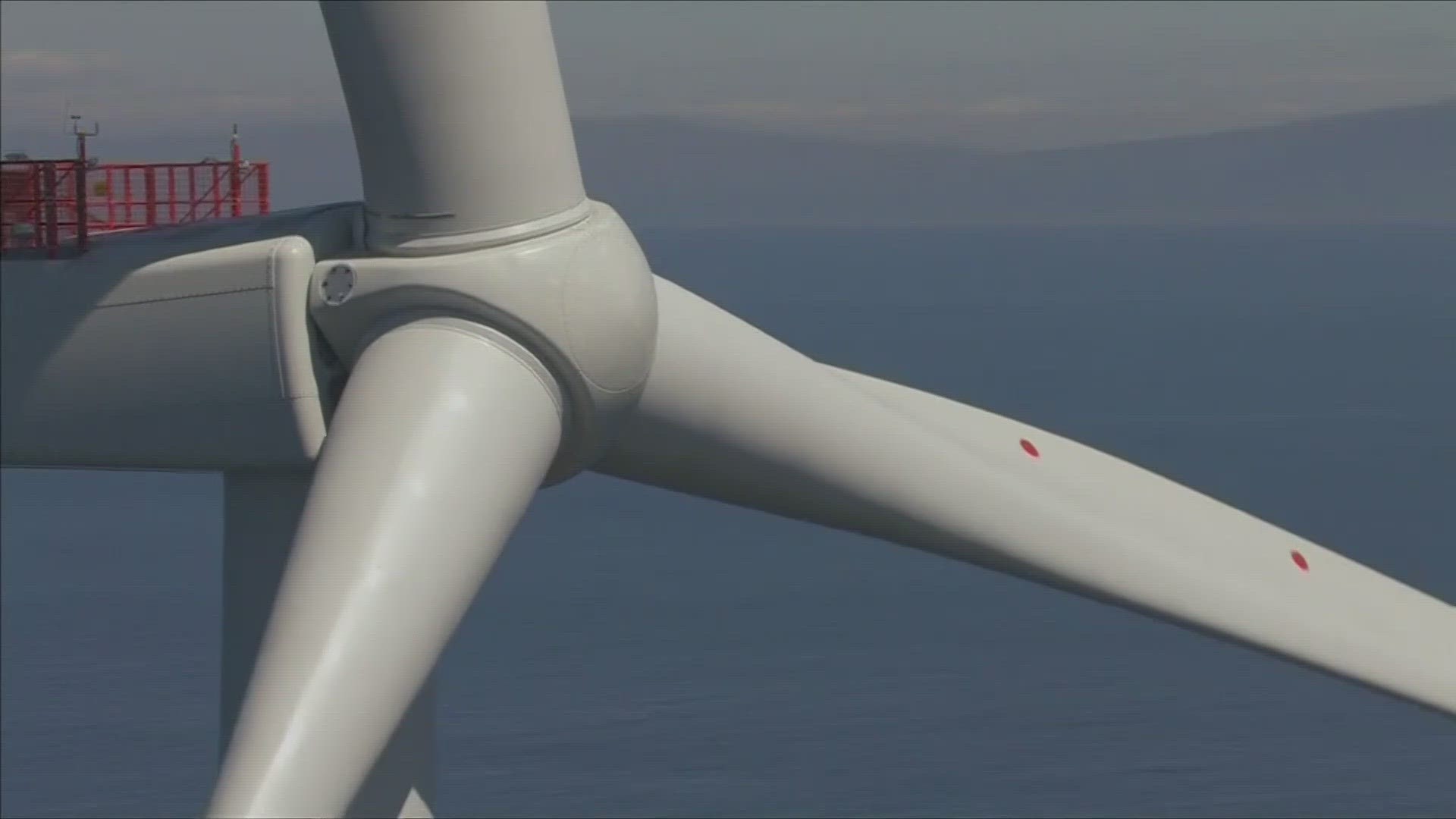AUGUSTA, Maine — Opposing bills in the Maine State Legislature’s committee on energy, utilities, and technology Thursday carried arguments on offshore wind.
LD 1895 would create the Maine Offshore Wind Renewable Energy and Economic Development Program within the Public Utilities Commission. The bill states the program would:
"A. Encourage the development of extraterritorial wind power projects in the Gulf of Maine that are responsibly sited and advance the renewable energy and climate policies and economic development goals of the State;
B. Establish standards for local hiring, workforce development and safety and promote diversity, equity and inclusion;
C. Monitor impacts of offshore wind power projects on the marine environment; and
D. Develop the transmission infrastructure necessary for the State to expeditiously meet its renewable energy and climate goals using offshore wind power projects located in the Gulf of Maine."
Proponents who attended Thursday’s hearing included members of Maine Audubon, the Maine Labor Climate Council, the Natural Resources Council of Maine, Maine Conservation Voters, and multiple labor unions whose members wish to build the turbines and infrastructure that would be placed off Maine’s coast.
Members of those organizations who spoke with NEWS CENTER Maine ahead of the hearing said this bill could pave the way for Maine to lead a market that is on its way here regardless while moving steadfastly to fight climate change that is rapidly warming the gulf.
The words "responsibly sited" are what brought Virginia Olsen to the table. She directs the Maine Lobstering Union, which has thrown its support behind LD 1895. Whether the subject is whale migration or an evolving industry perceived as encroaching on centuries-old fishing grounds, Maine’s lobstermen have had a delicate-at-best relationship with the state when it comes to offshore wind.
And, in fact, Olsen does not support offshore wind in her corner of the Atlantic. But, current language in the bill would incentivize projects constructed outside Lobster Management Area 1, a swath of ocean where the vast majority of Maine lobstermen make their living.
Osen said turbines would be going up in federal waters near Maine—like it or not—and this is Maine’s chance to control how it’s done. Furthermore, she added, since the turbine infrastructure is inevitable off Maine’s coast, it is better to benefit from the power generated there.
"This bill, really, is what we have for a lever," Olsen said. "The Bureau of Ocean Energy Management is responsible for leasing all of our federal waters. So, the only thing Maine can do is say that we will accept or we won’t accept a cable into our state waters to shore… That cable could go to New Hampshire or to Massachusetts."
Meanwhile, Kristan Porter, president of the Maine Lobstermen’s Association, testified against the bill, and in support of another. LD 1884 would prohibit the state from supporting any offshore wind projects.
The sponsor, Republican Representative from Harrington and mother to a 15-year-old lobsterman, Tiffany Strout, said the science is still in question regarding wind turbines’ impact on the ground and water underneath them. She said there are better ways to reach Maine’s climate goals.
"If we can wait and not do it, then I’m more in favor of that," Strout said of offshore wind development. "However, I do understand having a structure in place if there’s something that my bill doesn’t pass, or there’s other things that happen. I’m OK with preparing for the future."
For supporters of LD 1895 who said they had sat in on meetings with BOEM, the bill’s greatest strength and its most delicate feature is the coalition of support, from environmental groups to engineers, to some of Maine’s lobstermen—albeit a split faction.
They told NEWS CENTER Maine that BOEM, when looking to states and municipalities for partnership in development, searches for places with unified support for offshore wind. Holding this support together, as future projects begin, will be crucial to their economic and environmental aims.

